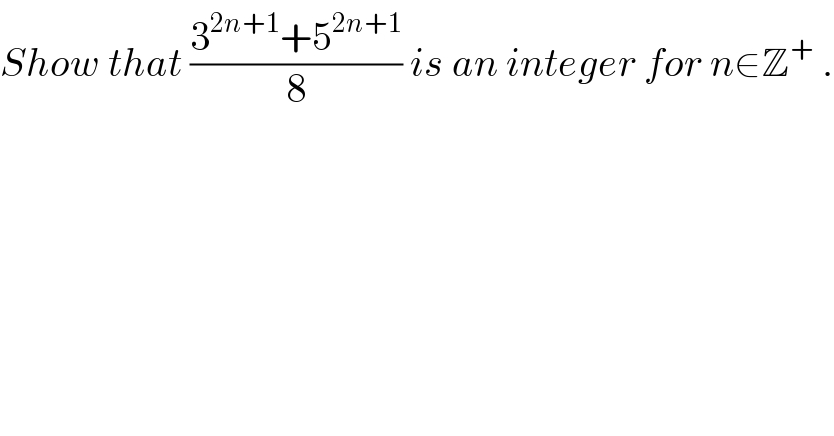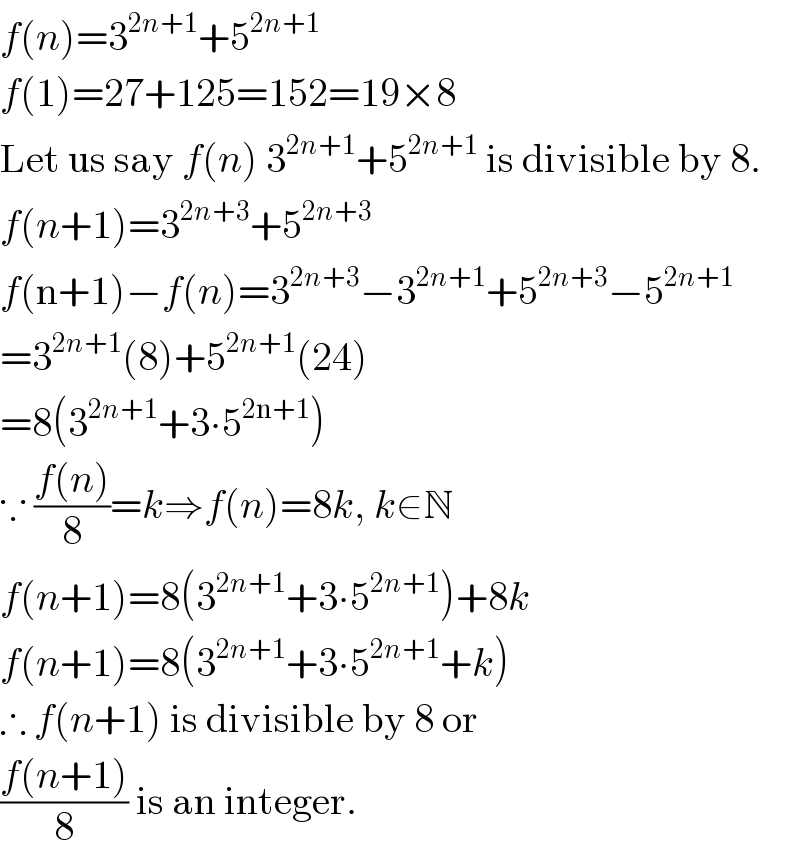
Question and Answers Forum
Question Number 2748 by Rasheed Soomro last updated on 26/Nov/15

Answered by prakash jain last updated on 26/Nov/15

Commented by RasheedAhmad last updated on 26/Nov/15

| ||
Question and Answers Forum | ||
Question Number 2748 by Rasheed Soomro last updated on 26/Nov/15 | ||
 | ||
Answered by prakash jain last updated on 26/Nov/15 | ||
 | ||
| ||
Commented by RasheedAhmad last updated on 26/Nov/15 | ||
 | ||